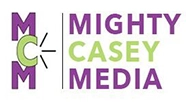Image from Twitter user @Rasha_Fadlallah This will be the third, and last, in my short series on attending the Cochrane Colloquium in Edinburgh in September of this year. In the first post, I talked about what that conference was like; in the second, I shared an overview of Cochrane as a global movement to make medical evidence work better for clinicians, patients, and communities around the world. This last one will talk about some of the issues Cochrane is facing, as an organization and as a proponent of science in a world that seems to have a rising suspicion of science and research. I watched the Cochrane Colloquium open not just with a welcome to Edinburgh – although there was that, in spades – but with a behind-the-scenes PR flame war that wound up sucking up the the headline space for Cochrane that week, and in the weeks since. I talked about it in my podcast the following week, and have watched the conversation go by since my first day on the ground at the Edinburgh International Convention Center. The short-snort version of what happened is this: On September 14, the Friday before the Cochrane Colloquium was to kick off (on Sunday the 16th), a letter went up on the Cochrane Nordic Center site’s News page from Dr. Peter Gøtzsche, wherein he announced that he had been expelled from the Cochrane governing board by a slim majority vote by that board. He cast it as a moral crisis, caused by Cochrane’s too-chummy relationship with the pharmaceutical industry. That letter has since disappeared from the Cochrane Nordic pages, the link is to a PDF on the Mad In America site. Cochrane itself stayed silent for 24 hours, putting up its response to Gøtzsche’s letter late on Saturday, referencing only an independent review of “complaints related to…
It’s been a fun week here in Mighty Casey Media Land. We kicked off the week a little early (on Sunday) – the 411 on that is available here, and some of the social exhaust is available on Storify here and here. One member of the e-patient posse worried that the guy was gon’ have to enter witness protection, given the avalanche of opprobrium aimed his way from the expert-patient community. Thank god. I was worried this guy might need to go into the witness protection program. TY @MightyCasey – #FTW! https://t.co/xIayus5Gao — Hurt Blogger | Britt (@HurtBlogger) June 17, 2015 In an email thread among a group of expert patients working on aggregating and curating patient-useable outcomes reporting tools, Dr. Corrie Painter said she had called the Brookings Institution, the think tank where the author of the US News piece that set my hair on fire does his think-tank thing, and left a terse message on the Governance Studies main line about pontificating patriarchal putzes (technical term). Given my willingness to talk to anyone, any time, if it moves the needle on healthcare system transformation, I went one better and called the *other* number on the guy’s bio page. I expected to wind up leaving a voicemail, but … He. Answered. The. Phone. We talked for about 30 minutes, during which I assured him that I did *not* think that Yelp reviews were the ne plus ultra, or even a thing, when it came to outcome metrics on physicians and other clinical providers of medical services. But, as I pointed out in my “I’m channeling Lewis Black, with boobs, in healthcare here: righteous rage + cutting humor = driving that point home!” post, what real metrics are *available* to patients seeking intel on the expertise and outcomes of the doctors they go to for care? There are PQRS and Physician…
The annual big-data party known as the HIMSS conference played out in Chicago – and online – last week. During the event, one of the central issues that arose in the social media conversation under the #HIMSS15 tag involved the one facing patients trying to access their health records, either digitally or on old-school paper: the security/access conundrum. Data that’s accessible to a patient could also wind up accessible to Romanian hackers (you’ve heard me on this topic before), and efforts at making patient data “secure” mean that data is often secure from the patient whose data it is. Patients give their forehead some serious keyboard every day over that one. The folks over at Software Advice released a report on HIPAA breaches on March 12*, which I only caught up with when I returned from my Mighty Mouth 2015 Tour of Info-Sec and Right Care. Full disclosure, I’m quoted in the report, but that’s not why I’m talking about it here. Here’s my biggest takeaway from the piece: 54% of the patients surveyed for the report would consider ditching a healthcare provider if that provider had a breach. Most Patients Would Switch Providers After Breach Key findings in the report: Forty-five percent of patients are “moderately” or “very concerned” about a security breach involving their personal health information. Nearly one-quarter of patients (21 percent) withhold personal health information from their doctors due to data security concerns. Only 8 percent of patients “always” read doctors’ privacy and security policies before signing them, and just 10 percent are “very confident” they understand them. A majority of patients (54 percent) are “moderately” or “very likely” to change doctors as a result of a patient data breach. Patients are most likely to change doctors if their medical staff caused a data security breach, and least likely to change doctors if hackers were…



